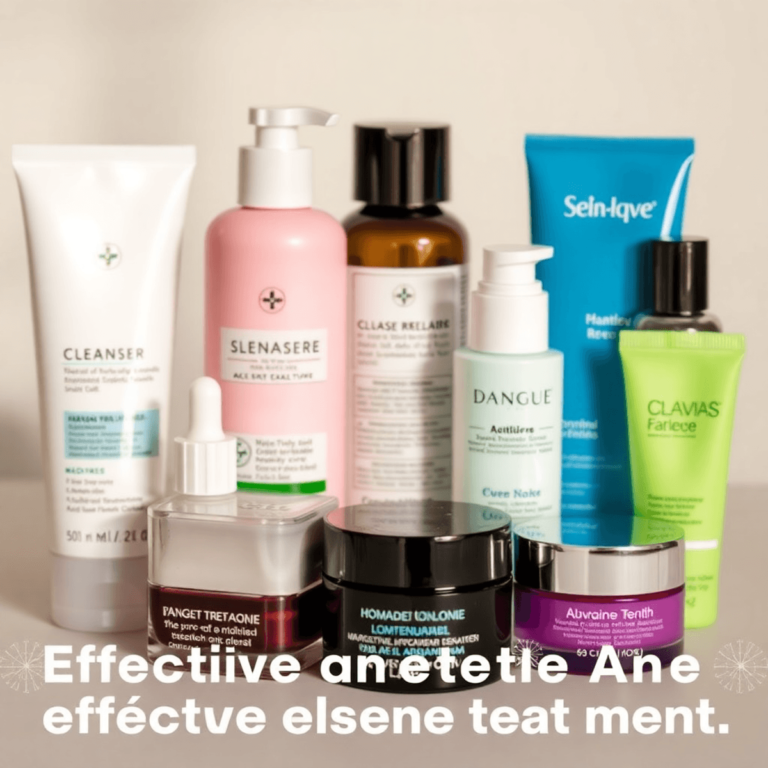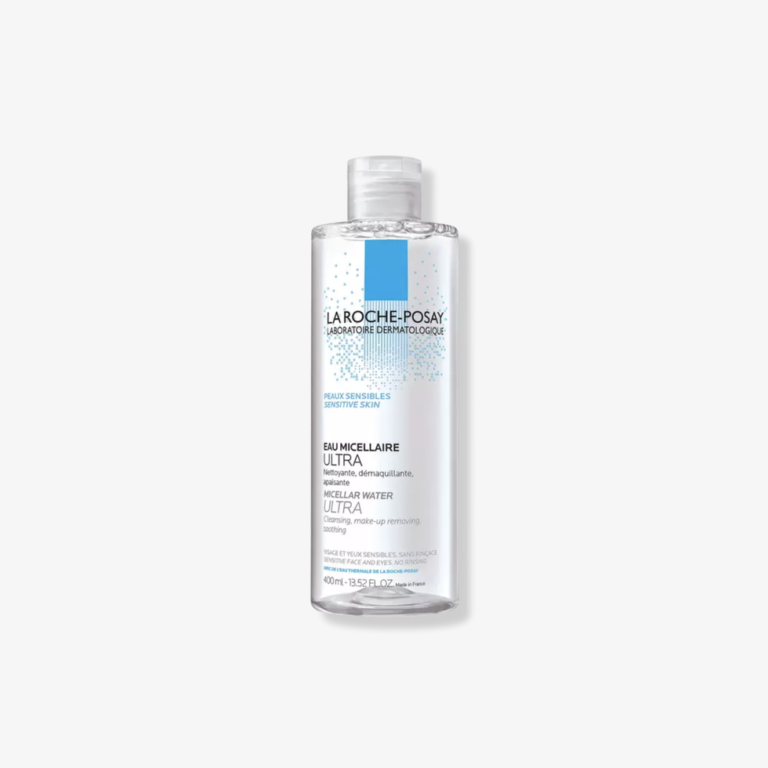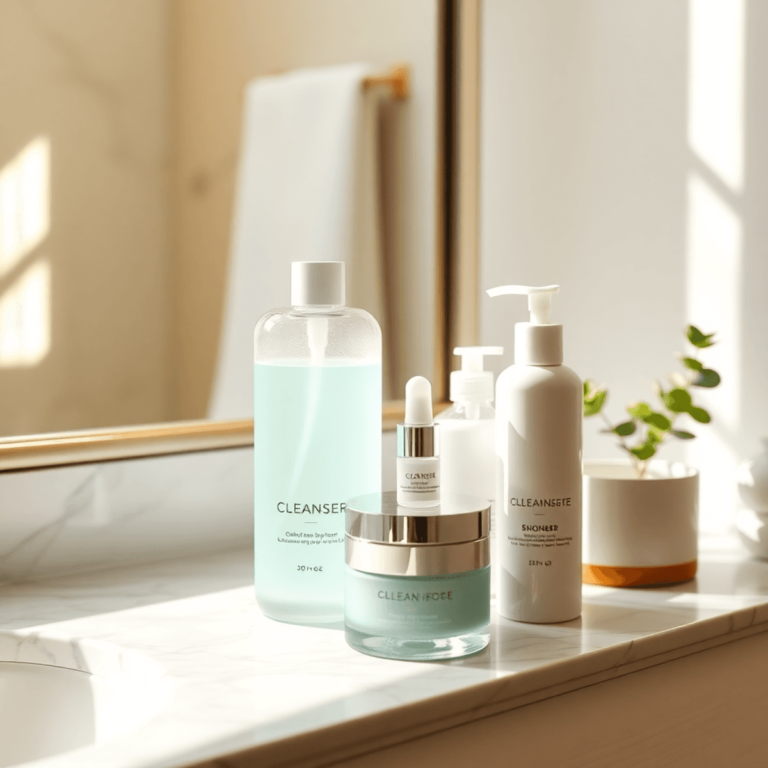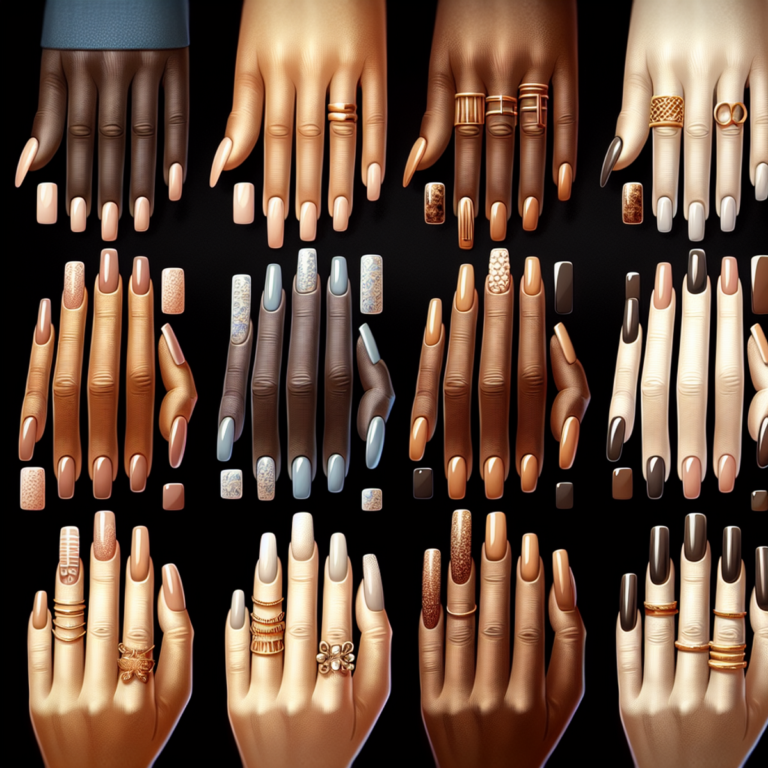6 Antioxidants That Will Boost Your Hair, Straight From Dermatologists
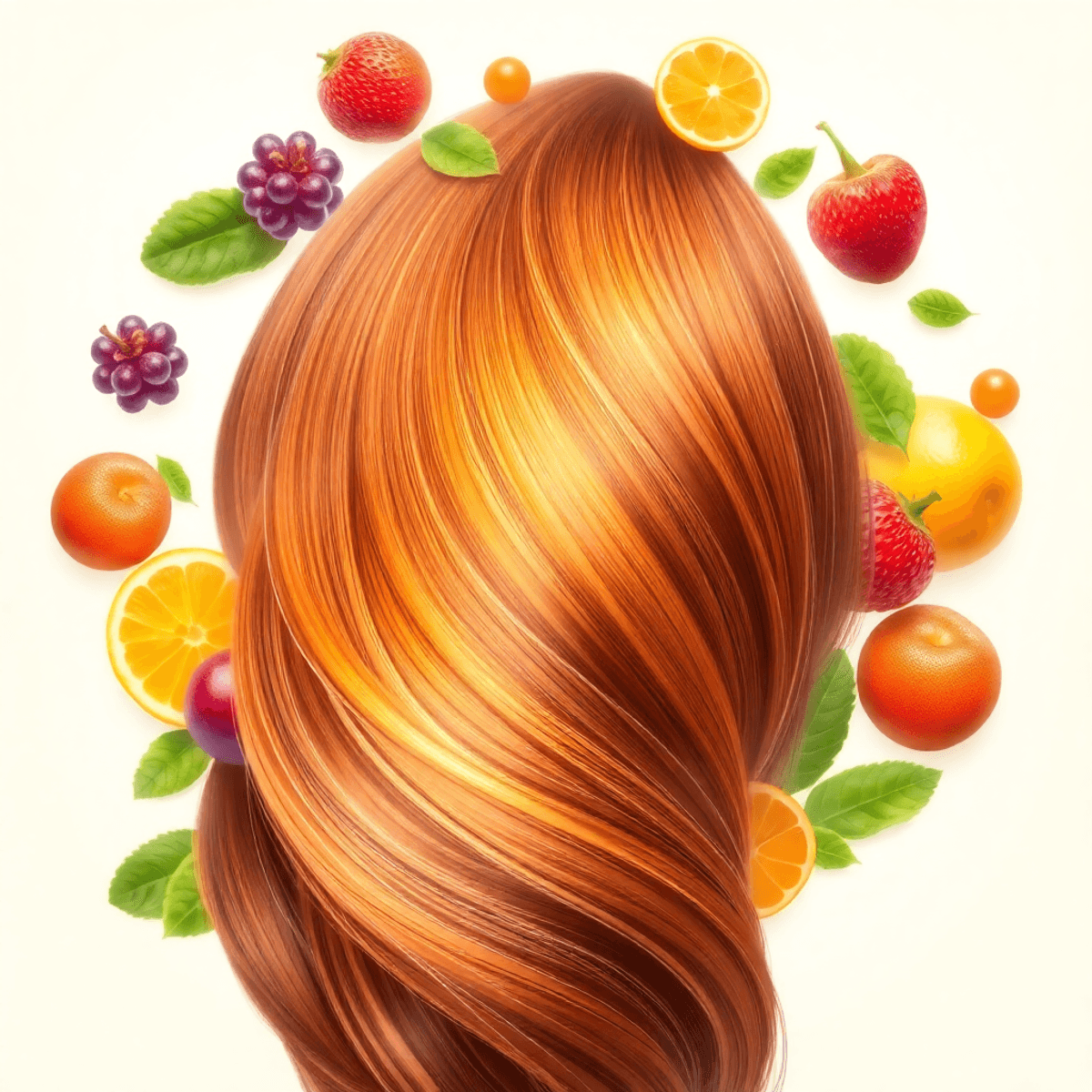
Introduction
Your hair faces daily challenges from environmental factors, lifestyle choices, and natural aging. These issues can make your hair look dull, damaged, and lifeless. But don’t worry, antioxidants are here to help.
Top dermatologists always stress how important antioxidants are for keeping your hair healthy and vibrant. These amazing substances work hard to protect your hair from harmful free radicals that can cause early aging, breakage, and even hair loss.
We talked to leading dermatologists to create a list of six essential antioxidants that can significantly improve your hair health:
- Vitamin A for promoting growth
- Vitamin C for strengthening
- Vitamin E for improving circulation
- Polyphenols for protecting against UV damage
- Selenium for supporting the immune system
- Niacinamide for retaining moisture
Each of these antioxidants has its own special benefits for your hair care routine. When used together, they form a complete defense system for your locks. Let’s take a closer look at how these powerful substances can transform your journey to healthier hair.
Understanding Antioxidants and Their Role in Hair Health
Your hair faces a daily battle against destructive molecules called free radicals. These unstable atoms actively seek electrons from healthy cells, triggering a damaging chain reaction known as oxidative stress. This process can wreak havoc on your hair structure, leading to:
- Weakened hair shafts
- Premature breakage
- Loss of natural shine
- Color fading
- Reduced elasticity
The Impact of Environmental Factors on Hair Health
Environmental factors like UV radiation, pollution, and heat styling accelerate free radical production, intensifying the damage to your hair follicles and strands. The resulting oxidative stress disrupts the natural growth cycle and compromises your hair’s protective barrier.
How Antioxidants Protect Your Hair
Antioxidants act as your hair’s defensive shield. These powerful compounds neutralize free radicals by:
- Donating electrons to stabilize harmful molecules
- Breaking the chain reaction of oxidative damage
- Supporting cellular repair mechanisms
- Protecting hair proteins from degradation
The Aging Process and Its Effect on Hair
The relationship between aging and oxidative stress creates a complex cycle affecting your hair health. As you age, your body’s natural antioxidant production decreases, making your hair more vulnerable to damage. This reduced protection can lead to:
- Thinning hair
- Decreased melanin production (causing graying)
- Slower growth rates
- Compromised scalp health
The Importance of Antioxidants for Healthy Hair
Research shows that maintaining optimal antioxidant levels through both internal and external sources helps preserve your hair’s youthful characteristics. These protective compounds work at the cellular level, supporting the metabolic processes essential for healthy hair growth and maintenance. For instance, certain antioxidants have been shown to play a significant role in promoting overall scalp health, which is crucial for fostering an environment conducive to healthy hair growth.
1. Vitamin A: The Growth Promoter
Vitamin A is a powerful nutrient for hair growth, working directly at the cellular level to stimulate hair follicles. This essential nutrient, also known as retinol, helps your scalp produce sebum – a natural oil that moisturizes your hair and keeps it healthy.
Your scalp health significantly impacts your hair growth cycle. Vitamin A plays a crucial role by:
- Regulating cell turnover in the scalp
- Supporting sebum production for natural moisturization
- Maintaining the hair growth cycle
- Preventing hair follicle regression
A well-balanced amount of vitamin A prevents common scalp issues like dryness, flakiness, and dandruff. These conditions can impede healthy hair growth and lead to breakage. The right amount of vitamin A keeps your scalp’s moisture barrier intact, creating an optimal environment for strong, healthy hair growth.
Rich Dietary Sources of Vitamin A
You can boost your vitamin A intake through these nutrient-dense foods:
- Orange vegetables:
- Sweet potatoes (1 cup = 1,403 mcg RAE)
- Carrots (1 medium = 509 mcg RAE)
- Butternut squash (1 cup = 1,144 mcg RAE)
- Dark leafy greens:
- Spinach (1 cup = 573 mcg RAE)
- Kale (1 cup = 147 mcg RAE)
- Swiss chard (1 cup = 206 mcg RAE)
Incorporating Vitamin A Into Your Diet
Try these practical ways to increase your vitamin A intake:
- Start your day with a smoothie containing carrots and leafy greens
- Replace regular fries with baked sweet potato wedges
- Add spinach or kale to your eggs at breakfast
- Use butternut squash as a base for soups and stews
Remember that vitamin A is fat-soluble, so pair these foods with healthy fats like olive oil or avocado to enhance absorption. The recommended daily allowance for vitamin A is 900 mcg RAE for men and 700 mcg RAE for women.
2. Vitamin C: The Strengthening Agent
Your hair’s strength relies heavily on collagen – a protein that forms the structural foundation of each hair strand. Vitamin C plays a crucial role in producing and maintaining this essential protein, making it a powerhouse antioxidant for hair health.
The Collagen Connection
- Vitamin C stimulates collagen production in your hair follicles
- It helps maintain the structural integrity of your hair shaft
- The antioxidant properties protect existing collagen from damage
Iron Absorption Benefits
Vitamin C enhances your body’s ability to absorb iron – a mineral vital for hair growth. Without adequate iron levels, your hair can become:
- Brittle and prone to breakage
- Thin and lackluster
- More likely to fall out prematurely
Rich Sources of Vitamin C
Add these vitamin C-packed foods to your diet:
- Citrus fruits (oranges, lemons, grapefruits)
- Bell peppers (especially red and yellow varieties)
- Strawberries
- Kiwi
- Broccoli
- Brussels sprouts
Practical Tips for Maximum Benefits
- Eat vitamin C-rich foods raw when possible
- Combine iron-rich foods with vitamin C sources
- Include at least one vitamin C food in each meal
- Consider fresh-squeezed citrus juice with breakfast
- Add bell peppers to your salads and stir-fries
Recommended Daily Intake
Women need 75mg of vitamin C daily, while men require 90mg. A single medium orange provides about 70mg, making it easy to meet your daily requirements through diet alone.
Your hair can benefit from both internal consumption and topical application of vitamin C. Many hair care products now incorporate this antioxidant in their formulations, offering an additional way to strengthen your strands and promote healthy growth.
Understanding the importance of vitamins like Vitamin C is crucial for overall health, including hair health.
3. Vitamin E: The Circulation Booster
Vitamin E is a powerful antioxidant that can greatly improve the health of your hair by increasing blood circulation. This essential nutrient works by expanding the blood vessels in your scalp, allowing oxygen and important nutrients to reach your hair follicles directly.
The Science Behind Vitamin E’s Benefits:
- Stimulates capillary growth in the scalp
- Reduces oxidative stress in hair follicles
- Protects cell membranes from free radical damage
- Supports the production of keratin, a key hair protein
Your hair follicles require a constant supply of nutrients to generate strong and healthy strands. You can think of vitamin E as a traffic controller, guiding essential nutrients directly to your follicles through improved blood flow. This increased circulation helps prevent thinning hair and encourages thicker, more resilient growth.
Rich Dietary Sources of Vitamin E:
- Nuts and Seeds
- Almonds (1 oz = 7.3mg)
- Sunflower seeds (1 oz = 7.4mg)
- Hazelnuts (1 oz = 4.3mg)
- Healthy Fats
- Avocados (1 whole = 2.7mg)
- Olive oil (1 tbsp = 1.9mg)
- Wheat germ oil (1 tbsp = 20mg)
- Leafy Greens
- Spinach (1 cup = 0.6mg)
- Swiss chard (1 cup = 0.7mg)
You can increase your vitamin E intake by incorporating these foods into your daily meals. Consider adding almonds to your morning yogurt, including avocado in your lunchtime sandwich, or drizzling olive oil over your dinner salad. A combination of these vitamin E-rich foods will help maintain optimal scalp health and support the natural growth cycle of your hair.
The recommended daily intake for vitamin E is 15mg for adults. Your body stores excess vitamin E, making it available when needed to continuously support scalp circulation and overall hair health.
4. Polyphenols: The UV Protectors
Polyphenols are powerful antioxidants that protect your hair from environmental damage, especially harmful UV rays. These natural compounds form a barrier around your hair strands, acting as a sunscreen for your locks.
Key Benefits of Polyphenols for Hair:
- Block UV radiation from entering hair shafts
- Prevent protein loss in hair fibers
- Protect natural hair color from fading due to sun exposure
- Reduce oxidative stress that causes premature graying
- Support melanin production in hair follicles
Green Tea: A Rich Source of Polyphenols
Green tea is packed with polyphenols, particularly catechins. These compounds can penetrate the hair shaft and provide protection from within. Here are some ways you can benefit from green tea:
- Drink 2-3 cups of green tea daily
- Use hair products infused with green tea
- Rinse your hair with cooled green tea
Olive Oil: Another Source of Polyphenols
Olive oil is another ingredient that can deliver polyphenols to your hair. It contains:
- Hydroxytyrosol – a powerful UV protector
- Oleuropein – supports scalp health
- Tyrosol – fights free radical damage
Here are some practical ways to incorporate olive oil into your routine:
- Add a tablespoon to your regular hair mask
- Apply it as a pre-shampoo treatment
- Mix it with your favorite conditioner
The Power of Combination
Research suggests that polyphenols work best when used both internally and externally. By combining dietary intake and topical application, you can provide optimal protection against UV damage and premature aging of your hair.
Other foods rich in polyphenols that are beneficial for your hair health include:
- Dark chocolate (70% or higher)
- Red grapes
- Berries
- Black coffee
- Red wine
- Pomegranates
5. Selenium: The Immune Supporter
Selenium is a powerful antioxidant that plays a crucial role in maintaining a strong immune system – which is essential for promoting healthy hair growth. This important mineral works at the cellular level to support your body’s natural defense mechanisms, creating an ideal environment for your scalp and hair follicles to thrive.
Key Benefits of Selenium for Hair Health:
- Regulates thyroid hormone production, which directly impacts hair growth cycles
- Neutralizes free radicals that can damage hair follicles
- Supports the production of glutathione peroxidase, a vital enzyme for cellular health
- Reduces inflammation associated with scalp conditions
The connection between selenium and dandruff control is particularly noteworthy. Research suggests that selenium’s anti-inflammatory properties help combat Malassezia, a fungus commonly linked to dandruff development. By reducing scalp inflammation, selenium creates an environment where hair can grow unimpeded.
Natural Sources of Selenium:
- Brazil nuts (1-2 nuts provide your daily requirement)
- Seafood (tuna, halibut, sardines)
- Eggs
- Mushrooms
- Sunflower seeds
Your body needs just 55 micrograms of selenium daily to maintain optimal hair health. While this might seem minimal, achieving the right balance is essential – too little can lead to hair problems, while excessive intake might cause adverse effects.
Dermatologists recommend incorporating selenium-rich foods into your diet rather than relying solely on supplements. This approach ensures proper absorption and reduces the risk of overconsumption. For those dealing with persistent scalp issues, selenium-based shampoos can provide additional targeted support.
The combination of selenium’s immune-boosting properties and its ability to combat scalp inflammation makes it an invaluable ally in your hair care routine. When paired with a balanced diet and proper hair care practices, selenium helps create the foundation for strong, healthy hair growth.
6. Niacinamide (Vitamin B3): The Moisture Retainer
Niacinamide is a powerful antioxidant that helps create a healthy environment for your scalp. This form of vitamin B3 works by strengthening the natural moisture barrier of your scalp, which is essential for promoting hair growth.
Key Benefits of Niacinamide for Hair Health:
- Enhances ceramide production in the scalp
- Regulates sebum production
- Reduces scalp inflammation
- Improves blood circulation to hair follicles
- Strengthens the skin barrier function
The moisture barrier of your scalp is important for protecting hair follicles and keeping them hydrated. Niacinamide helps retain moisture by increasing the production of ceramides, which are natural lipids that form a protective layer on your scalp.
Recommended Topical Products:
- Hair Serums: Look for lightweight formulas containing 2-5% niacinamide
- Scalp Treatments: Choose products that combine niacinamide with other moisturizing ingredients
- Leave-in Conditioners: Select options featuring niacinamide in their top ingredients
- Hair Masks: Use weekly treatments enriched with vitamin B3
The ideal concentration of niacinamide in hair care products ranges from 2% to 5%. Higher concentrations might not provide additional benefits and could potentially cause irritation in sensitive scalps.
Application Tips:
- Apply niacinamide-enriched products directly to your scalp
- Massage gently to enhance absorption
- Use consistently for optimal results
- Pair with moisturizing ingredients like hyaluronic acid or glycerin
For even better results, combine topical niacinamide products with dietary sources rich in vitamin B3, such as:
- Fish (tuna, salmon)
- Mushrooms
- Green peas
- Avocados
- Whole grains
Incorporating Antioxidants into Your Hair Care Routine
Creating a comprehensive antioxidant strategy for your hair involves both dietary changes and topical applications. Here’s how to maximize the benefits of these powerful compounds:
Dietary Integration
- Start your day with antioxidant-rich smoothies combining berries, spinach, and nuts
- Replace regular cooking oil with antioxidant-rich olive oil
- Add brazil nuts to your trail mix for a selenium boost
- Snack on colorful bell peppers and citrus fruits between meals
- Include fatty fish in your weekly meal rotation
- Drink green tea instead of coffee for some meals
Smart Product Selection
- Look for hair serums containing vitamin E and niacinamide
- Choose shampoos with antioxidant-rich ingredients like green tea extract
- Apply scalp treatments featuring vitamin C derivatives
- Use leave-in conditioners containing multiple antioxidants
- Select hair masks with natural oils rich in vitamin E
- Try products containing selenium sulfide for dandruff control
Application Tips
- Layer your antioxidant products from lightest to heaviest
- Apply scalp treatments to damp hair for better absorption
- Use antioxidant-rich oils as pre-shampoo treatments
- Massage products into your scalp to stimulate blood flow
- Store antioxidant products in dark bottles away from sunlight
- Apply leave-in treatments immediately after washing
Timing Your Routine
- Use intensive treatments twice weekly
- Apply lightweight serums daily
- Perform oil treatments once a week
- Use antioxidant-rich masks after chemical treatments
- Time your supplements with meals for better absorption
- Space out different antioxidant products throughout the day
Remember to patch test new products and introduce changes gradually. Your hair needs time to adjust to new treatments, and consistent application yields the best results.
Conclusion
Your journey to healthier hair starts with these six powerful antioxidants. The combination of dietary changes and targeted topical treatments creates a comprehensive approach to hair care that addresses both internal and external factors affecting your hair health.
Remember that individual hair needs vary significantly. What works for one person might not work for another. Listen to your hair’s needs and adjust your antioxidant intake accordingly.
While these dermatologist-recommended antioxidants provide substantial benefits for hair health, they’re not a one-size-fits-all solution. If you’re experiencing persistent hair concerns such as:
- Excessive hair loss
- Scalp conditions
- Unusual changes in hair texture
- Premature graying
Schedule an appointment with a dermatologist or healthcare provider. They can evaluate your specific situation and create a personalized treatment plan that incorporates these antioxidants effectively.
By making antioxidants a consistent part of your hair care routine through both diet and products, you’re investing in the long-term health and vitality of your hair.
FAQs (Frequently Asked Questions)
What are antioxidants and why are they important for hair health?
Antioxidants are compounds that help combat oxidative stress caused by free radicals, which can lead to hair damage. They play a crucial role in maintaining healthy hair by protecting it from environmental damage and supporting overall scalp health.
How does Vitamin A contribute to hair growth?
Vitamin A promotes hair growth by maintaining a healthy scalp and preventing dryness and flakiness. It is essential for cellular production and turnover, which supports the growth of strong hair strands.
What role does Vitamin C play in maintaining hair structure?
Vitamin C aids in collagen synthesis, which is vital for maintaining strong and resilient hair strands. Additionally, it enhances iron absorption, an important mineral for healthy hair growth.
How can I incorporate Vitamin E into my diet for better hair vitality?
You can incorporate Vitamin E into your diet by consuming food sources rich in this antioxidant, such as avocados and nuts. These foods promote healthy blood circulation to the scalp, ensuring that hair follicles receive adequate nutrients.
What benefits do polyphenols provide for hair health?
Polyphenols, found in foods like olive oil and green tea, protect hair from UV damage and help delay premature graying. They act as powerful antioxidants that support overall hair vitality.
How does niacinamide improve the health of my scalp?
Niacinamide enhances the skin barrier function on the scalp, helping to retain moisture essential for healthy hair strands. Topical products containing niacinamide can be beneficial additions to your hair care routine.


